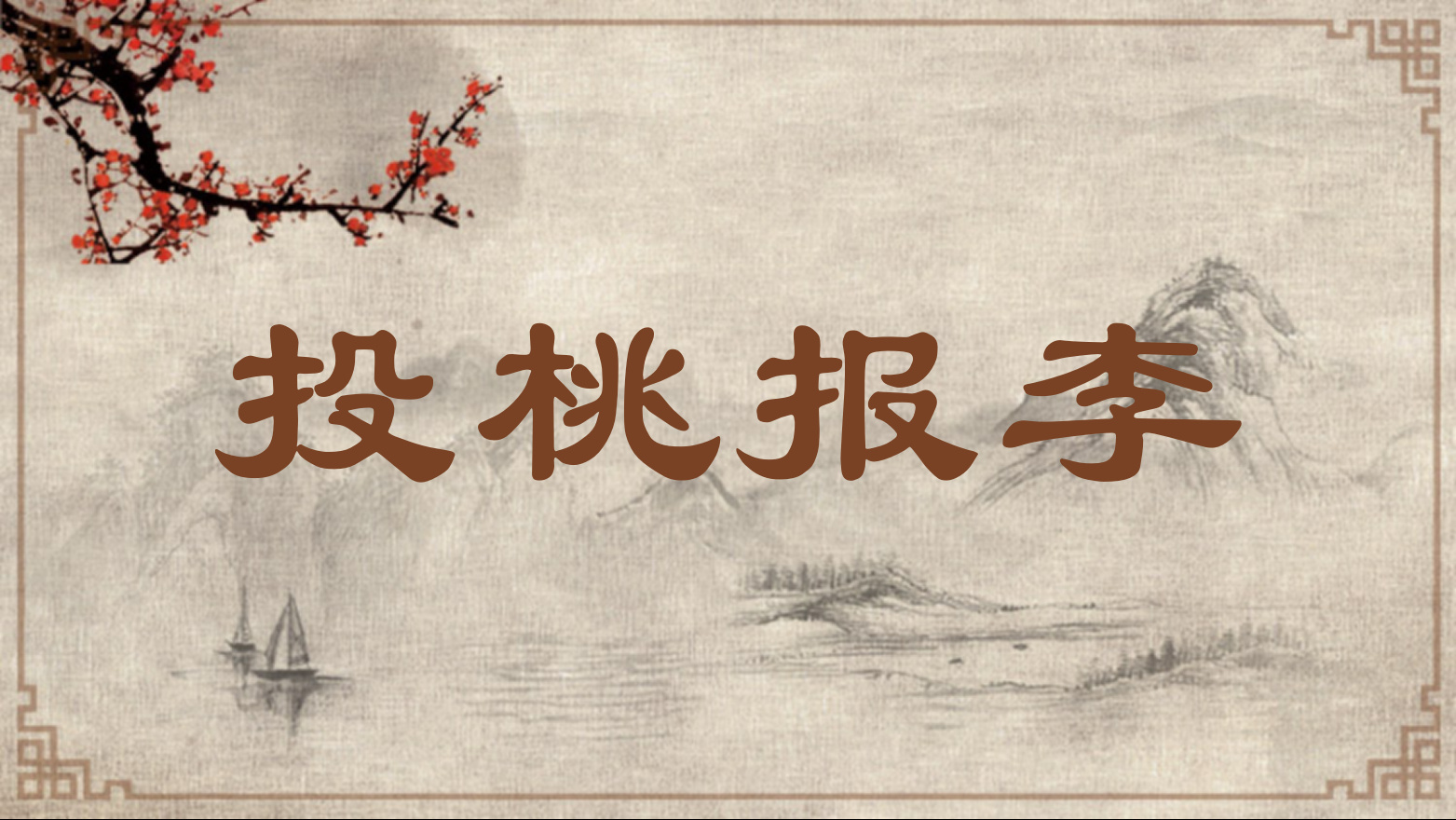
来源:“学习强国”学习平台
你赠我木桃,我回赠你木李(“木桃”即楂子,一种落叶灌木,果实圆,味酸涩,一说即桃子)。泛指互赠礼品,礼尚往来。其意义并不在于互赠的礼品本身,而在于以礼品为载体,传递对对方的善意,表达与对方永结友好的诚意,其中隐含平等互惠的关系原则。它是“以德报德”(相互善待)这一关系准则的形象表达,是“礼尚往来”理念积极面的体现。小到个人关系,大到国家关系,皆循此理。
Toutaobaoli, the Chinese original, literally means when you give me a peach, I will also give you a peach in appreciation. The term generally refers to reciprocating a gift in kind as an expression of mutual courtesy. What is important is not the gift itself but the goodwill conveyed by the gift as well as the desire of forging lasting friendship with the other party. The expression implies the principle of equality and mutual benefit. It is a figurative way to state a principle of "returning good for good," which is a positive aspect of the notion of reciprocity. This principle applies to relationships big or small, ranging from those between individuals to those between states.
引例 Citations:
◎投我以木桃,报之以琼瑶。匪报也,永以为好也!(《诗经·国风·木瓜》)
你赠我木桃,我回赠你琼瑶。不是为了回赠物品,而是为了永远结好。
"You gave me a peach and I gave you a beautiful jade in return. It is not for repayment of your gift, but for our lasting friendship." (The Book of Songs)
◎《大雅》之所道曰:“无言而不雠,无德而不报。”“投我以桃,报之以李。”即此言爱人者必见爱也,而恶人者必见恶也。(《墨子·兼爱下》)
《诗经·大雅》说:“没有出言就没有应答,没有施恩就没有报答。”“你赠我木桃,我回赠你木李。”这就是说爱人的人必定会被人爱,而憎恶人的人必定会被人憎恶。
The Book of Songs has these lines: "No words that are said should be unanswered; no virtues that are rendered should be unreciprocated." "Give me a peach, and I will give you back others." These lines mean that if you love you will be bestowed with love, but if you hate others you will be treated in the same way. (Mozi)
推荐:教育部 国家语委
供稿:北京外国语大学 外语教学与研究出版社
责任编辑:钱耐安





